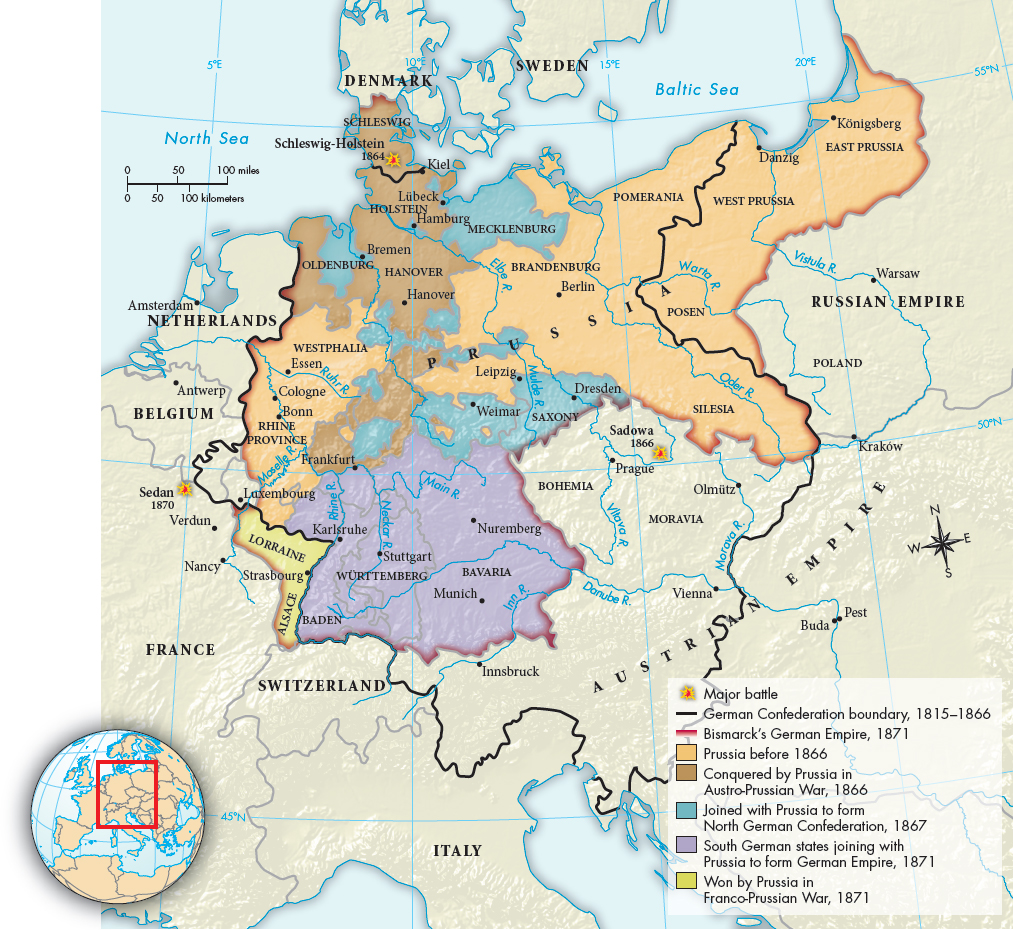Understanding Western Society
Printed Page 714
Chapter Chronology
Bismarck and the Austro-Prussian War
Upon taking office, Otto von Bismarck (1815–1898) declared that William’s government would rule without parliamentary consent. Bismarck had the Prussian bureaucracy go right on collecting taxes, even though the parliament refused to approve the budget. Bismarck also reorganized the army. And for four years, from 1862 to 1866, voters continued to express their opposition by sending large liberal majorities to the parliament.
Opposition at home spurred Bismarck to search for success abroad. Schleswig-Holstein — two provinces that belonged to Denmark but were members of the German Confederation (Map 23.2) — provided an opportunity. In 1864, when the Danish king tried, as he had in 1848, to bring these two provinces into a more centralized Danish state against the will of the German Confederation, Prussia enlisted Austria in a short and successful war against Denmark.
Bismarck, however, was convinced that Prussia had to control completely the northern, predominantly Protestant part of the confederation, which meant expelling Austria from German affairs. After the victory over Denmark, Bismarck’s clever maneuvering left Prussia in a position to force Austria out by war.
The Austro-Prussian War of 1866 that followed lasted only seven weeks. Using railroads to mobilize troops quickly, the Prussian army won a decisive victory. Anticipating Prussia’s future needs, Bismarck offered Austria generous peace terms. But the existing German Confederation was dissolved, and Austria agreed to withdraw from German affairs. Prussia conquered and annexed several small states north of the Main River and completely dominated the newly formed North German Confederation. The mainly Catholic states of the south remained independent but allied with Prussia. Bismarck’s fundamental goal of Prussian expansion was partially realized.

MAP 23.2 The Unification of Germany, 1864–1871This map shows how Prussia expanded and a new German Empire was created through the Austro-Prussian War of 1866 and the Franco-Prussian War of 1870–1871.> MAPPING THE PASTANALYZING THE MAP: What losses did Austria experience in 1866? What territories did France lose as a result of the Franco-Prussian War?
CONNECTIONS: How was central Europe remade and the power of Prussia-Germany greatly increased as a result of the Austro-Prussian War and the Franco-Prussian War?
